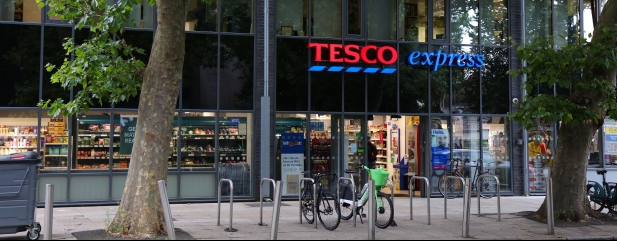Archived article
Please note that tax, investment, pension and ISA rules can change and the information and any views contained in this article may now be inaccurate.
Tesco’s trading update may hold the key to full-year expectations

AJ Bell is an easy to use, award-winning platform Open an account
We've accounts to suit every investing need, and free guides and special offers to help you get the most from them.
You can get a few handy suggestions, or even get our experts to do the hard work for you – by picking one of our simple investment ideas.
All the resources you need to choose your shares, from market data to the latest investment news and analysis.
Funds offer an easier way to build your portfolio – we’ve got everything you need to choose the right one.
Starting to save for a pension, approaching retirement, or after an explainer on pension jargon? We can help.
Please note that tax, investment, pension and ISA rules can change and the information and any views contained in this article may now be inaccurate.

It has been an unusually unsettled time for shareholders in the UK’s largest supermarket group, with the shares falling heavily in mid-March after rival Asda warned it would start another price war.
The stock tumbled again in mid-April when the company revealed operating profit for the current financial year could be as much as 14% lower than last year at £2.7 billion depending on how much ‘firepower’ management invests in prices to maintain market share.
Therefore, analysts and investors will want to know from the firm’s first-quarter trading statement on 12 June whether £2.7 billion was a worst-case scenario or whether it now represents the base case, as the current consensus operating profit forecast is £2.9 billion.
Retail sales in April were stronger than expected, primarily driven by a rebound in food store spending at the expense of non-food.
However, as chief economic adviser to the EY ITEM Club Matt Swanell pointed out, there has been ‘a puzzling inconsistency’ in official data this year with retail sales seemingly outstripping consumer spending.
A clearer picture emerged from the Kantar till roll data for the four weeks to 18 May, with grocery sales up 4.4% thanks to food price inflation of 4.1%, the highest level since February 2024.
As consumers feel the pinch, they are increasingly buying own-brand groceries and looking for deals, but there are fewer promotions than usual.
What retailers are doing instead is trimming prices – according to Kantar, 80% of promotional spending has been straightforward price cuts rather than BOGOFs (buy-one-get-one-free).
In terms of market share, over 12 weeks Tesco improved its take to 28% from 27.6% a year ago, but it was the discounters Aldi and Lidl who gained the most ground, accounting for a combined 19.2% of the market against 18.2% last May.
UK UPDATES OVER THE NEXT 7 DAYS
FULL-YEAR RESULTS
10 June: GB Group, Oxford Instruments, Vianet
11 June: Fuller Smith & Turner, Molten Ventures, Revolution Beauty Group
12 June: Halma, Mind Gym, Motorpoint, Norcros, PayPoint
INTERIMS
10 June: Diales Group, Porvair
12 June: Benchmark Holdings, IDOX
TRADING ANNOUNCEMENTS
12 June: Tesco
These articles are provided by Shares magazine which is published by AJ Bell Media, a part of AJ Bell. Shares is not written by AJ Bell.
Shares is provided for your general information and use and is not a personal recommendation to invest. It is not intended to be relied upon by you in making or not making any investment decisions. The investments referred to in these articles will not be suitable for all investors. If in doubt please seek appropriate independent financial advice.
Investors acting on the information in these articles do so at their own risk and AJ Bell Media and its staff do not accept liability for losses suffered by investors as a result of their investment decisions.
The value of your investments can go down as well as up and you may get back less than you originally invested. We don't offer advice, so it's important you understand the risks, if you're unsure please consult a suitably qualified financial adviser. Tax treatment depends on your individual circumstances and rules may change. Past performance is not a guide to future performance and some investments need to be held for the long term.
 magazine
magazine